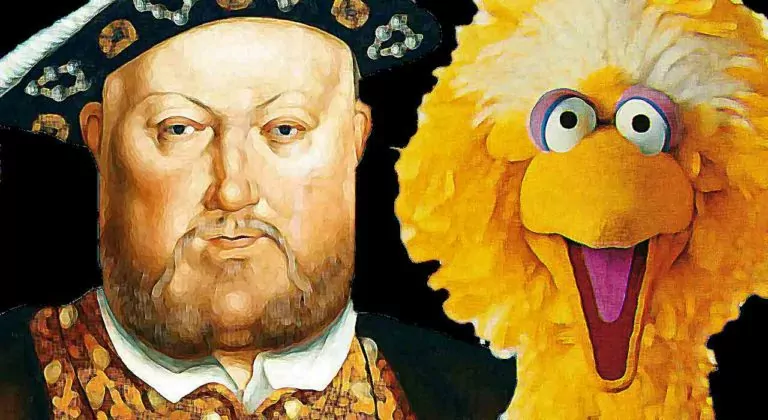Komm, süßer Tod, komm selge Ruh or “Come, sweet death, come, blessed rest” is a melody Johann Sebastian Bach composed in the 1700s. Through this wonderfully harmonious composition, Bach evokes in Christians the desire for death, heaven and the Lord Jesus. The words, by an anonymous author, are these:
Come lead me to peace
Because I am weary of the world,
O come! I wait for you,
Come soon and lead me,
Close my eyes.
Come, blessed rest!
Just recently we heard some neighbor children express the desire to see and speak with their grandparents, both of whom died this last year within weeks of one another. The children were four and six years old.
“Can’t I just send them an e-mail,” the four-year-old piped up, as his mother smilingly shook her head.
The other one stated, as he raced a toy car along the floor, that he preferred to get in an airplane and soar up into the sky to say “hi” to Nana and Grandpa. Such anecdotes make us smile, but they should also make us aware that most children, as well as many adults, have no idea about what death actually is; that they have no inkling that it is a stepping-stone to an eternity that never ends.
Big Bird’s lament
Many of us who had or were children during the 1970s, were acquainted with Mr. Hooper on the children’s program Sesame Street. (This is a program, by the way, which children should not watch any longer.) Friendly Mr. Hooper, who ran the grocery store on the program, was well liked. When he died during the 1982 season the dilemma for the producers of Sesame Street was what to tell their audience, composed of children, about Mr. Hooper’s demise.
They came to the conclusion that the show’s adult actors should tearfully and emotionally explain to one of the favorite characters, Big Bird, that Mr. Hooper had passed away and would never come back to Sesame Street. Big Bird reacted tearfully and became very upset. He was both confused and sad. The adults continued to reassure him that they were still there and loved him and that they would take care of him. Death itself was not explained, although Big Bird pointedly did ask his adult friends, “Why does it have to be this way? Give me one good reason!” One of the adults answered him in a vague sort of way: “Big Bird, it has to be this way … just because.” It was a very unsatisfactory explanation of death leaving the viewers with a void – ignoring both the promise of heaven and the reality of hell.
Another Mr. Hooper
To offer contrast, there is the story of the death of another Mr. Hooper, a Mr. John Hooper who lived and died in England during the 1500s. And intertwined with his passing there is the story of a child who accepted and believed that John Hooper’s death was triumphant and not at all the end of his life.
Although not much is known about this English John Hooper’s childhood, it is a fact that he was the only son and heir to a well-to-do English family and was brought up as a staunch Catholic. To tell his story, or what we know of it, we must focus on Gloucester, the city where he died.
By our standards, Gloucester, England, was not, at the time of John Hooper, a big city. Four thousand citizens lived and worked in the small metropolis. They had various occupations; the sun rose and set on them daily; and they lived and died within its boundaries without traveling elsewhere. There were the coopers, friars, bakers, carpenters, and there were the rich, poor, blind and maimed people.
The streets were lined with inns, several monasteries, and between them were hidden both wooden and stone houses. Four main roads led in and out of Gloucester, all meeting at a main intersection where the town’s high cross stood. They were named from the gates by which they entered the town. Thus there were the Eastgate, Northgate, Southgate and Westgate streets. Northgate led to London; Southgate to Bristol; Eastgate to Oxford; and Westgate to Wales. People walked, rode in carts, and journeyed by horse on these unpaved roads. Gloucester was a little world within the world.
The Roman Catholic Church held sway in Gloucester. Henry VIII had ascended to the throne of England in 1491 and was a loyal servant of the Catholic Church. That is to say, he was a loyal servant of the church until he wanted something the church would not give him – an annulment to his marriage. His disagreement with the Pope on this matter led him to establish the Church of England. God uses all things for His glory, both good and bad. The Church of England was thus born partly out of lust, and it was a church that, although free of papal authority, had a man as its head.
In Gloucester, pamphlets had been distributed and copies of the Bible were sold by tinkers and booksellers prior to Henry’s divorce. People read comforting words by candlelight and many were convinced by the Holy Spirit of the truth of the Gospel. In 1538 Henry issued a royal license that the Bible might be openly sold to and read by all English people without any danger of recrimination. He then issued another decree appointing a copy of the Bible to be placed in every parish church. It was to be raised upon a desk so that anyone might come and read it.
Henry VIII died, as all men must die, and was buried with great pomp and ceremony. His son Edward, who was only nine years old, became king after him. Young Edward had been fed the Solas of the Reformation by Protestant teachers and his youthful heart had been convinced of their truth by the Holy Spirit. It was during his brief reign that Gloucester was blessed with a Bishop who diligently and openly began to feed its citizens God’s Word. His name was John Hooper, and he was no longer Roman Catholic.
Another Paul
John Hooper was a Paul. He was a faithful pastor. At times preaching four or five times a week, both on the streets of Gloucester and inside the Cathedral, he truly loved and felt compassion for the people. He fed the poor, explained the Gospel and was diligent in visiting his flock. Consequently, John Hooper was much loved by the people of the city.
A boy by the name of Thomas Drourie also lived in Gloucester at this time. He was a local lad and was blind. Whether he had become blind as the result of an accident or an illness, or whether he was born blind, is not known. It is not recorded that he was a beggar, so very likely he had a supportive family. Perhaps he had been educated in the school which Henry VIII had established in Gloucester, or perhaps he’d had a tutor. In any case, Thomas Drourie was well acquainted with the Bible.
During those blessed years of young Edward VI, Protestant teachers and pastors were safe from the charge of heresy. But these were only a few years – the years of 1547 to 1553. The very youthful monarch, providentially placed by God on the throne of England at this time, died of tuberculosis when only a teenager. His half-sister, Mary, succeeded him. Mary was a dyed-in-the-wool Roman Catholic, and she had no regard for the John Hoopers and the Thomas Drouries of her realm.
After Mary’s ascent to the throne, John Hooper was immediately arrested, tried for heresy and found guilty. Because he had been pastor in Gloucester, he was eventually brought back to that town in February of 1555, to die there at the stake. As preparations were being made for the burning of this faithful pastor, the boy Thomas Drourie found his way to the place where he was held prisoner. Thomas knocked loudly at the door and a guard opened it to see who was making all the noise. Thomas, after a long conversation with the guard, who took a liking to the boy, was taken to see the Bishop.
Upon entering the Bishop’s cell, Thomas was overcome with love. He himself had been imprisoned just a few weeks prior for his faith but had been released with a warning. After all, he was only a child. Bishop John Hooper asked the boy why he had been imprisoned. Thomas candidly confessed his faith in Jesus and in His atonement. Upon hearing the child’s earnest words, the bishop began to weep.
“Ah, Thomas!” he said, “Ah, poor boy! God has taken from you your outward sight, for what consideration He best knows; but He has given you another sight much more precious, for He has induced your soul with the eye of knowledge and faith. God give you grace continually to pray unto Him that you lose not that sight, for then you should be blind both in body and soul.”
Thomas hid the bishop’s words in his heart and begged the guard who led him out of the prison cell to be permitted to hear the bishop speak prior to his being burned at the stake. The guard took the boy to the cathedral sanctuary where the Chancellor of Gloucester, Dr. Williams, was working together with his registrar. Now Dr. Williams had the distinction of having had two “conversions.” Originally Roman Catholic, he had ‘converted’ to the Protestant religion during Henry VIII’s later years. And now, under Mary, he had “converted” back to Roman Catholicism.
When the boy was brought before him, Dr. Williams examined him on some minor matters, but then he questioned Thomas on transubstantiation.
“Do you believe that after the words of the priest’s consecration, the very body of Christ is in the bread?”
Thomas responded strongly with a child’s assurance: “No, that I do not.”
Dr. Williams peered at the boy in front of him. “Then you are a heretic, Thomas Drourie, and shall be burned. Who taught you this heresy?”
Thomas, the eyes of his heart bright even though his outward vision was dull, answered: “You, Mr. Chancellor.”
Dr. Williams sat upright. “Where, pray, did I teach you this?”
Thomas replied, pointing with his hand to where he supposed the pulpit was, “In yonder place.”
Dr. Williams was aghast. “When did I teach you this?”
Thomas, looking straight at the place from where the Chancellor’s voice came, answered clearly: “When you preached there a sermon to all men, as well as to me, upon the sacrament. You said the sacrament was to be received spiritually by faith, and not carnally and really as the papists have heretofore taught.”
Dr. Williams felt a certain shame in his heart. Nevertheless, his voice boomed out through the church. “Then do as I have done and you shall live as I do and escape burning.”
Thomas did not hesitate. “Though you can so easily dispense with your own self, and mock God, the world and your conscience, I will not do so.”
Dr. Williams, unable to threaten or cajole or convince the boy to recant back to Roman Catholicism, as he himself had done, finally said: “Then God have mercy upon you, for I will read your condemnatory sentence.”
Thomas, showing no fear, responded: “God’s will be fulfilled.”
The registrar stood up and walked over to the Chancellor. “For shame, man! Will you read the sentence and condemn yourself? Away! Away! Substitute someone else to give sentence and judgment.”
But Chancellor Williams would not change his mind. “Mr. Registrar,” he barked out, “I will obey the law and give sentence myself according to my office.” After this he read the sentence, albeit with a shamed tongue and an even more shamed conscience.
Knowing that death was but a stepping stone to life, the blind boy, Thomas Drourie was burned at the stake on May 5, 1556, almost three months after Bishop John Hooper was burned.
The end that comes to all
Chancellor Williams came to a sad end, or rather, a horrible end, about three years later. Having dined with a William Jennings, a representative of the newly crowned Queen Elizabeth I, a queen who had much sympathy for the Protestant cause, he was asked by Jennings to meet with some royal commissioners. Whether he was worried about his colorful “conversion experiences” is not known, but it is a fact that he did not want to go to this meeting. Consequently, Mr. Jennings rode off alone.
Later Jennings was overtaken in his journey by a servant who informed him that the Chancellor had become ill. It was afterwards conjectured that the Chancellor had poisoned himself, so worried was he that he would be ill-treated by the Queen’s commissioner. However, upon receiving a courteous and friendly message from the commissioner shortly after he had downed the poison, the Chancellor tried to recover from his lethal dose by taking some antidote. It was too late. The poison took its course.
Heaven is real. Hell is real. And children die as well as adults. But those who die with the eyes of their hearts opened, confessing the Lord Jesus, can sing with a hope that shines eternally:
Come lead me to peace
Because I am weary of the world,
O come! I wait for you,
Come soon and lead me,
Close my eyes.
Come, blessed rest!
For the rich man, there was eternal torment. For Bishop John Hooper, there was the bosom of Abraham. For Chancellor Williams – what shall we say? For Thomas Drowrie there was the light of God’s countenance.











